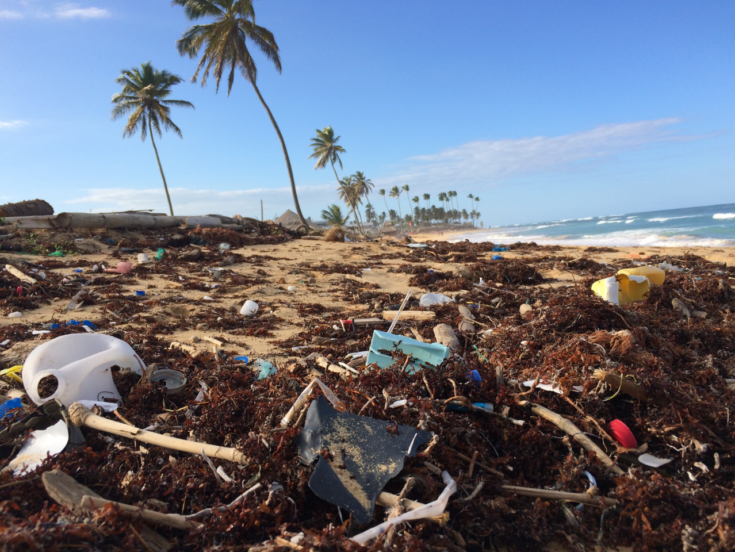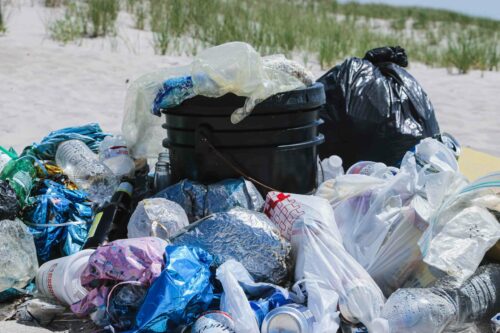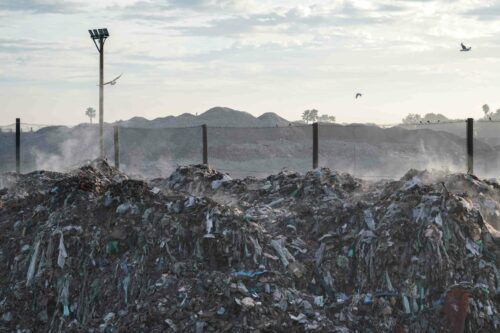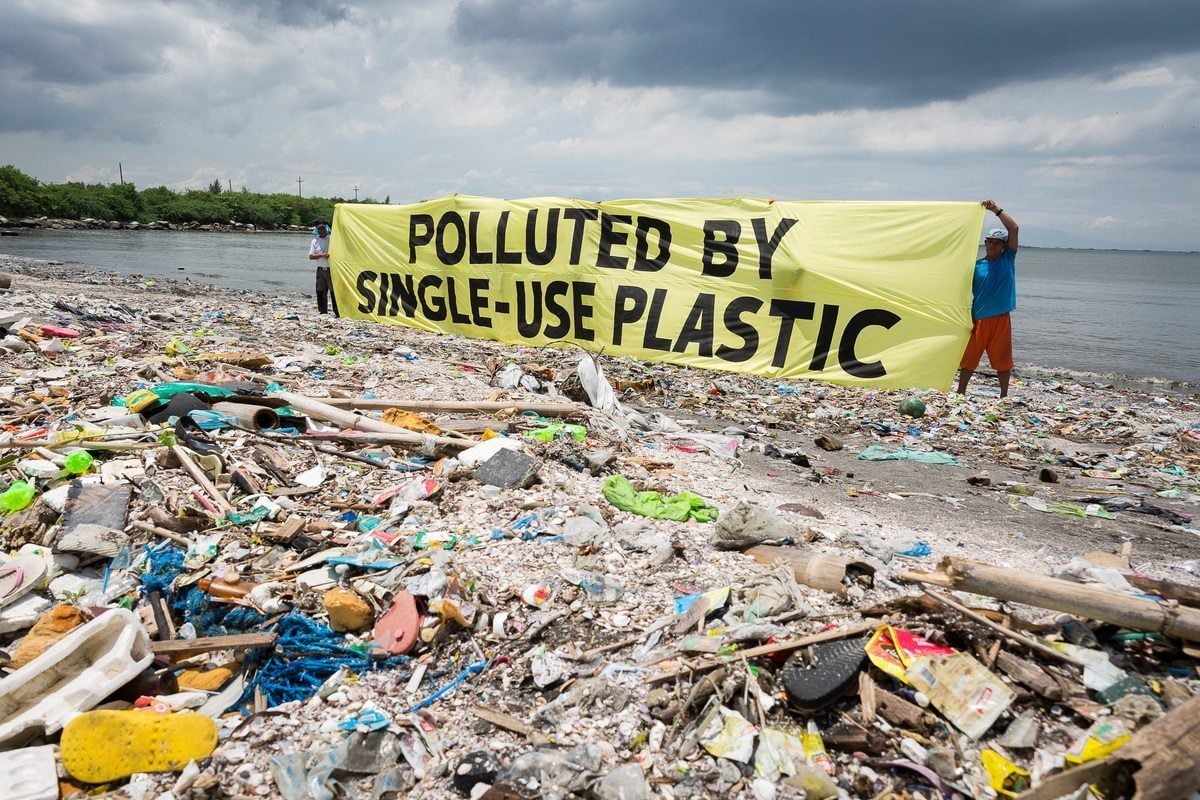SOMWR is stepping up its efforts to combat beach and ocean plastic pollution. We're proud to announce that we're increasing the amount of plastic we collect for each product. Together with our partner, STARBOARD, be it a board, wing, or SOMWR garment, from 1.1 kg to 1.4 kg. Our Plastic Offset Program crews are playing a crucial role in this endeavor, and we're excited about the positive impact we can make.
WHY ARE WE INCREASING COLLECTION FROM 1.1KG TO 1.4KG?
But why this change? Since 2018, we've been collecting 1.1 kg of plastic for every product we sell, representing the average amount of ocean plastic each person was responsible for introducing to the ocean annually. However, the reality is that plastic pollution in our oceans is on the rise, and it's increasing faster than our population growth. This means that the average plastic contribution per person has actually grown to 1.4 kg.
WHERE DO THE NUMBERS COME FROM?

You might wonder where the 1.4kg numbers come from. It's important to note that the exact amount of plastic in our oceans is challenging to measure due to the vast distribution of plastic debris (microplastic) and limitations in data collection methods. To update our calculation, we scoured the internet for reliable information on ocean plastic and identified nine reputable sources, such as NRDC, Plastic Oceans, Ocean Conservancy, UNEP, Reuters, Surfers Against Sewage, Parley, Condor Ferries, and Oceana.
- NRDC – 8 million tonnes = 1kg per person
- Plastic Oceans – Over 9 million tonnes = 1.1kg per person
- Ocean Conservancy – 11 million tonnes = 1.4kg per person
- UNEP – 11 million tonnes = 1.4kg per person
- Reuters – 11 million tonnes = 1.4kg per person
- Surfers Against Sewage – 12 million tonnes (referencing this paper from 2016) = 1.5kg
- Parley – 12.7 million tonnes (14 million tons) = 1.6kg per person
- Condor Ferries – 12.7 million tonnes = 1.6kg per person
- Oceana – 14.7 million tonnes (33 billion pounds) = 1.8kg per person
These sources provided varying estimates of ocean pollution, ranging from 8 million tonnes to almost 15 million tonnes. We chose to focus on 11 million tonnes, as it falls in the middle and is supported by three separate reports from trustworthy sources. When you divide 11 million tonnes of ocean plastic by our global population of 8 billion, it averages out to 1.4 kg of plastic pollution per person.
WHY SOMWR COLLECTS BEACH PLASTIC

SOMWR is fully aware that, as a company that predominantly produces plastic-based products, we are part of the plastic pollution problem. We've taken it upon ourselves to collect 1.4 kg of plastic for each of our products to raise awareness about the importance of our oceans, support local communities, and reduce the impact of plastic pollution on our beaches. Our goal is to sensibly reduce the amount of plastic that enters the oceans per person every year.
It's essential to emphasize that, regardless of the precise figures, plastic pollution in the ocean remains a significant environmental concern. It has detrimental effects on marine ecosystems, wildlife, and human health. To address this global issue, we need to make efforts to reduce plastic waste, improve waste management systems, and promote recycling and sustainable practices.
WE ARE ALL RESPONSIBLE FOR OCEAN PLASTIC

Let's all acknowledge our shared responsibility for ocean plastic pollution. The key contributors to this issue include overconsumption and our single-use culture, inadequate waste management systems, littering and poor waste disposal habits, limited awareness and education, and the need for sustainable alternatives. While individual actions are important, systemic changes and government policies also play a vital role.
OVERCONSUMPTION AND SINGLE-USE CULTURE:
One of the key contributors to the staggering amount of plastic entering our oceans is our society’s addiction to overconsumption and the pervasive culture of single-use items. From plastic bags and bottles to packaging materials and disposable utensils, our reliance on these convenient but harmful products has far-reaching consequences. By reducing our consumption of single-use plastics, we can significantly decrease the amount of waste generated and ultimately prevent it from polluting our oceans.
INADEQUATE WASTE MANAGEMENT SYSTEMS:

Insufficient waste management infrastructure and practices play a significant role in the plastic pollution crisis. In many parts of the world, improper disposal and inadequate recycling facilities lead to vast amounts of plastic waste ending up in landfills, and waterways, and eventually making their way into the ocean. By supporting and advocating for improved waste management systems. We can help minimize plastic leakage and promote more effective recycling and waste reduction strategies.
LITTERING AND POOR WASTE DISPOSAL HABITS:
Littering and improper waste disposal habits are deeply ingrained societal issues that exacerbate plastic pollution. Whether it’s discarding plastic items on streets, beaches, or rivers. These actions often result in plastic waste being carried by wind and water currents. Ultimately finding their way into our oceans. By taking individual responsibility for our waste and adopting proper disposal habits. We can prevent plastic from entering marine ecosystems and preserve the health of our oceans.
LIMITED AWARENESS AND EDUCATION:

Insufficient awareness and understanding of the impact of plastic pollution on marine environments also contribute to the ongoing crisis. Many people are unaware of the long-lasting consequences of plastic waste on marine life, ecosystems, and human health. Therefore, by actively seeking knowledge and educating ourselves about the environmental impact we can make informed choices and inspire others to take action. Read here to find out more about our POP environmental education program.
SUPPORTING SUSTAINABLE ALTERNATIVES:
Transitioning to sustainable alternatives is a crucial step in reducing plastic pollution. From reusable bags and bottles to eco-friendly packaging materials, embracing sustainable options can significantly reduce the demand for single-use plastics. By supporting businesses and initiatives that prioritize sustainable practices, we can drive the shift towards a more environmentally conscious society.
By taking steps like reducing our consumption of single-use plastics, practicing proper waste disposal, and supporting sustainable alternatives, we can collectively work towards a future where our oceans are free from the burden of plastic pollution. Join us in making a positive change for our planet's well-being.


